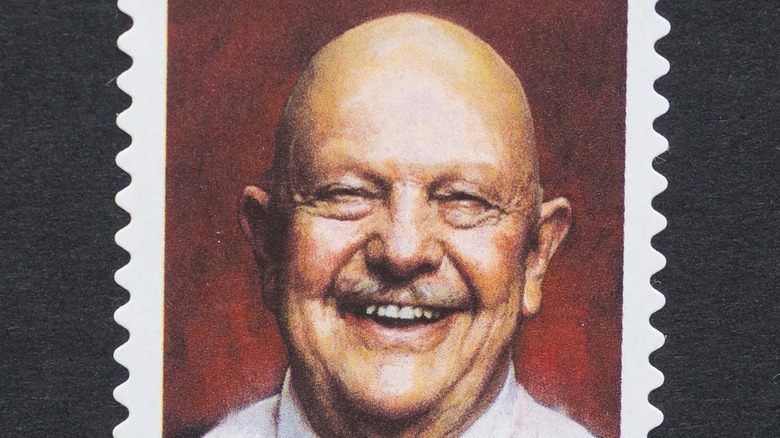The Real Reason The James Beard Awards Were Called Off In 2020
Have you ever heard of James Beard? An OG American foodie who authored more than 20 highly regarded cookbooks, opened two culinary schools, and hosted one of the world's first cooking shows on NBC in 1946, Beard is a legendary figure in the food world (via James Beard). Following his death in 1985, the James Beard Foundation was established to continue to support chefs and food education. In 1986, the nonprofit organization purchased Beard's New York City townhouse, and the stately home went on to host many annual food events.
In 1990, the James Beard House became host to the annual James Beard Foundation Awards, which recognize excellence in the food and beverage industries. These awards, like the equally shiny Michelin stars, have gone on to become some of the food world's most sought-after. Chefs, sommeliers, and architects alike strive to take home titles such as Outstanding Chef, Outstanding Wine Program, and Design Icon.
But last year, for the first time in its history, the James Beard Awards were called off. And it wasn't because of the COVID-19 pandemic, as you might expect — the Foundation had already planned on holding a virtual ceremony.
Restaurant industry bad behavior was the reason for 2020's cancellation
When the highly regarded James Beard Foundation Awards were cancelled last year, the nonprofit foundation that supports chefs and the U.S. cooking industry originally cited the COVID-19 pandemic as the reason for the ceremony's abrupt cancellation. In a press release published on its official website, the foundation cited the enormous toll the pandemic had taken on the restaurant industry that year. Amid mass closures and the suspension of indoor dining at the majority of the country's eateries, the foundation just didn't think it would be fair to announce "winners" or "losers," the press release explained.
"The uncertainty of this time for our industry is already a hard reality and considering anyone to have won or lost within the current tumultuous hospitality ecosystem does not in fact feel like the right thing to do," wrote in the release. "In short, an honor which we know is held in high regard, at the moment, feels minor when compared to the dire situation we are in."
Fair enough, right? But as it turns out, the reasons for 2020's cancellation were more complex. As an Eater article published yesterday reports, the James Beard Foundation also decided to start an audit of its awards process due to the alleged "bad behavior" of many chefs in the industry over the past few years.
How 2021 will be different
In the audit, shared on its website, the James Beard Foundation stated that it would be examining its annual awards process in order to ensure that awards would go to a more diverse crowd of winners who were better aligned with the Foundation's "values of equity, sustainability, and excellence." As Eater notes, the nonprofit's 2020 list of winners included many chefs who had been accused of bad behavior, from Sqirl's Jessica Koslow, who has been accused of serving moldy jam, to Milwaukee chef Paul Bartolotta, who has had "anonymous accusations" leveled at him. Additionally, zero 2020 winners were black, which understandably led to even more criticism of the nonprofit's choices.
Going forward, the foundation's audit announced, the awards process will include a new, independent ethics committee that will weed out any misbehaving chefs. It will also diversify its panel members and judges to include 50% BIPOC by 2023, and will cast a wider net when looking for nominees and winners, Eater reported.
This year, the foundation announced it will air a virtual ceremony on Twitter on September 27, plus several smaller concurrent live events. The ceremony will not honor any "winners," but rather will "will be a salute to the independent restaurant community, showcasing some of the organizations, leaders, and businesses that have made a significant impact in the industry and their communities during the COVID-19 pandemic." In 2022, after their audit "to ensure a more transparent and equitable process" is complete, the foundation plans on returning to its traditional format.


